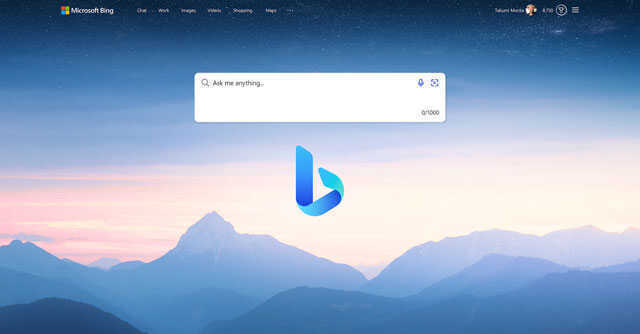
Will Microsoft's GPT-powered Bing outplay Google's Bard?


Jolted by the phenomenal success of ChatGPT, Google launched its artificial intelligence (AI)-powered chatbot called Bard. Microsoft countered two days later with its AI-powered Bing search engine and Edge browser. Will Google succumb to, or prevail over, the combined AI onslaught of OpenAI and Microsoft?
Is this a battle for AI supremacy?
Twitter was abuzz on Wednesday over AI radically transforming chatting, searching, and surfing. Futurist and author of the 'Rise of the Robots', Martin Ford tweeted: "A Tech Race Begins as Microsoft Adds #AI to Its Search Engine". OpenAI's ChatGPT is based on a transformer model called GPT-3.5 but Google pioneered transformer models. Google's Bard, yet to be integrated with Google Search, is powered by its Language Model for Dialogue Applications, or LaMDA, which a former Google engineer claimed had become sentient. Bing countered with a ChatGPT-like search version and an AI-powered Edge browser. The AI war has just begun.

How will this transform the role of search engines, browsers?
So far, search engines have displayed an array of results best suited to answer a user’s query. With the inclusion of a chat interface, users may simply ask a question instead of scouting through scores of links. The use of such AI could also change how search engine optimization (SEO) works for websites, since they will now seek to provide the ‘best’ answer to a query instead of simply appearing at the top of Search results. For browsers, the AI could become value adds, where they will display additional or related information, or even summarize a document you’re viewing automatically.
Can we access the new Bard and Bing?

Google's Bard is currently open only to "trusted users", while anyone can access Bing.com to sample queries or sign up for the waitlist. You can now use Microsoft's Edge browser's "compose" and "chat" features too. Microsoft plans to soon introduce the same on mobiles too. Microsoft has a waitlist for the new Bing. Users can sign up using their Microsoft accounts.
Will this increase Microsoft's digital ad revenue?
Google dominates the search engine, browser, and digital advertising space. Microsoft recorded $18 billion revenue from digital advertising in CY22 as opposed to Google's $168.44 billion net revenue in the same period. Chrome accounts for about 65% over the overall browser market while Edge has a mere 4.5%, according to Statcounter. Google also leads the search engine market with a whopping 89% share as opposed to Bing’s 4.55%, according to Statista. But Microsoft believes its transformed Bing and Edge will allow it “to innovate at a greater pace because of the smaller market share”.

What are the challenges?
Experts say smart platforms like ChatGPT can mislead with ‘incorrect’ and ‘nonsensical’ answers, leading to more misinformation. Microsoft clarified that it has built in classifiers to its AI to avoid biases, etc., when using Bing for search but there’s a need for AI governance policies. Further, since AI is providing the information that is actually owned by a publisher, there could be questions about how publishers will be paid for Microsoft or Google using the same content. Search engines will also have to ensure that they continue driving traffic to websites, instead of simply capturing the user within their own walled gardens.
